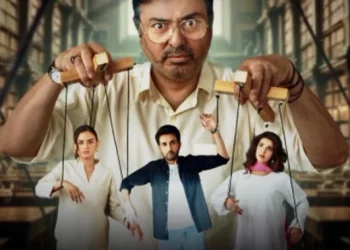- Leases can help you get a nicer car for less money.
- Know your budget and mileage constraints going in.
- Bumper-to-bumper coverage is important for tech-packed cars.
Shopping for your first new car can be overwhelming, and you will hear a lot of advice from older generations about why leasing is a bad idea. But that’s not always the case anymore.
Conventional wisdom around leasing versus buying has changed in the last decade or so as car prices have skyrocketed. Choosing to buy a car instead of leasing made more sense when cars cost under $30,000 and could be paid off in a matter of a couple of years.
But now, the average transaction price of a car hovers around $46,000 and loan terms are averaging six years as car owners try to bring down monthly payments to a reasonable level. Stretching loan payment periods can be a dangerous game, especially since vehicles depreciate in value so consistently.
If you’re shopping solely based on monthly payments, as many first-time car buyers are, leasing is probably the right option for you. Here are a few of the reasons why leasing might make more sense today.
Lighter debt
Leases offer the opportunity to take out a smaller loan. When you lease a car, you’re only taking out an auto loan to cover the duration of your lease period, which can cut the size of your loan considerably.
Smaller loans also lead to lower monthly payments, which you can also bring down by putting down money upon the time of signing your lease.
There are just a couple of things to keep in mind when considering this lighter debt.
First, it helps to already have good credit. When shopping for a loan you often have more lending options and can shop around for different interest rates. Leases are typically limited to a single lender.
Second, it can be dangerous to put down too much money at once. The conventional wisdom from car salespeople is to limit your down payment to about $2,000 maximum.
The reason for this is if you total the vehicle, you won’t see any of that money come back since you don’t own the car. So, if you put down $6,000 to bring your monthly payment down a few hundred dollars, you lose that whole $6,000 if the car is totaled during the lease.
Bumper-to-bumper coverage
Leasing a car, much like renting an apartment, means that you’re not financially responsible for many of the repairs necessary to keep the car running while you’re leasing. Leases are typically under the vehicle’s included factory warranty and large repairs are covered.
A decade or so ago, most vehicle repairs weren’t all that expensive or difficult to manage, which is why older generations tend to overlook this advantage for leasing.
Cars today are packed with so much technology that a simple malfunction in a screen or damage to a camera can end up costing thousands of dollars for someone who owns rather than leases their vehicle.
You’re still responsible for routine maintenance like oil changes and tire rotations – though some dealerships have leasing deals that cover maintenance so look out for those.
You can upgrade from used to new
As with any major purchase, you should take all of your circumstances into consideration when deciding whether to lease or buy.
If you’re shopping for a used car, consider checking on leasing deals to see if you can manage a similar monthly payment for a leased new car as you would for a loan on a used car.
Leasing is also a way to try out new cars before you’re ready to commit to something long-term – and you can always opt to buy the car at the end of the lease.
A few warnings
There are a few things to keep in mind before you decide to lease a car.
You should always have a good idea of what mileage you can realistically commit to – don’t go for a low-mileage lease for the lower monthly payment if you know you’re going to blow past it.
You’re locked into that vehicle for the duration of the lease period. If you’re expecting your driving needs to change in the 2-3 years you’re under a lease, buying might be a better option. Leases are notoriously expensive to terminate.
What parts of car buying do you want demystified next? Send suggestions and questions to this reporter at nnaughton@insider.com









